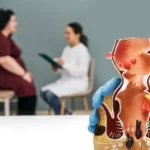Managing depression can feel isolating, but support from others who understand the struggle can make a difference. Support groups provide a safe space to share experiences and build connections that help alleviate feelings of loneliness. By fostering community and encouragement, they complement professional treatment and promote emotional resilience. Here’s more information on the role of support groups in overcoming depression:
Creating a Safe and Understanding Environment
Support groups offer a safe space where individuals can share their thoughts and feelings without fear of judgment. Members understand the daily challenges of depression because they experience similar struggles. This shared understanding creates an atmosphere of acceptance that many people cannot find elsewhere.
Within these groups, members learn that their feelings are valid and common among people with depression. They discover they are not alone in their struggles with motivation, sleep problems, or negative thoughts. The group environment helps reduce shame and self-blame that often accompany depression. Members feel more comfortable discussing their symptoms when they know others have faced similar challenges.
Learning Coping Skills and Strategies
Support groups serve as learning environments where members exchange practical techniques for managing depression symptoms. Participants share strategies that have worked for them, creating a resource pool of tested approaches. These may include specific relaxation techniques, structured daily routines, or methods for challenging negative thinking patterns.
Members learn from each other’s successes and mistakes, gaining insights they may not discover on their own. For instance, one person might share how exercise helps their mood, while another explains their method for managing difficult mornings. The group setting enables detailed discussions about what works and what doesn’t, allowing each member to build a personalized toolkit of coping strategies.
Emotional Support and Motivation
Depression often involves feelings of hopelessness and isolation, making it difficult to stay motivated in treatment. Support groups offer emotional validation and encouragement, which can be particularly helpful during challenging periods. Members offer comfort to each other during setbacks and celebrate progress together.
The group dynamic fosters accountability, helping members adhere to their treatment plans. When someone shares their goals with the group, they feel more committed to following through. Members also provide perspective during difficult times, reminding each other of past successes and progress made. This ongoing encouragement helps maintain hope and motivation throughout the recovery process.
Complementing Professional Treatment
Support groups work best when combined with professional mental health care rather than replacing it. They provide further support between therapy sessions and help reinforce skills learned in individual treatment. Many therapists recommend support groups as part of a comprehensive treatment approach.
Groups can help people practice skills learned in therapy within a supportive community setting. Members may role-play difficult conversations or share how they applied therapeutic techniques in real-life situations. This practice helps strengthen new skills and build confidence in using them independently. Support groups also provide ongoing support after formal treatment ends, helping prevent relapse and maintain progress.
Explore Treatment Options for Depression Today
Support groups offer valuable benefits for people working to overcome depression. They provide safe environments for sharing experiences, opportunities to learn practical coping strategies, and emotional support from people who understand the challenges of depression. While support groups complement professional treatment rather than replace it, they can significantly enhance recovery outcomes. For depression and associated symptoms, contact a specialist near you to explore available treatment options for depression today.





